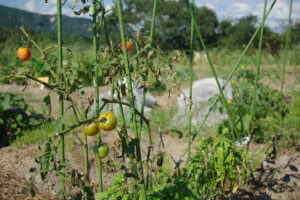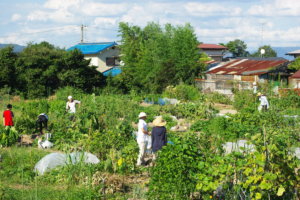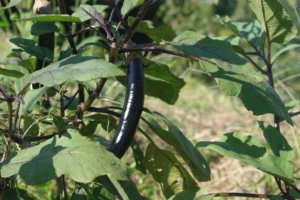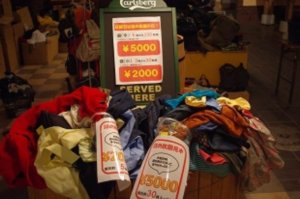Weekend Farming in Japan: What’s It All About - Therapy, Social Interaction, Education, Match-making?
CONTENTS
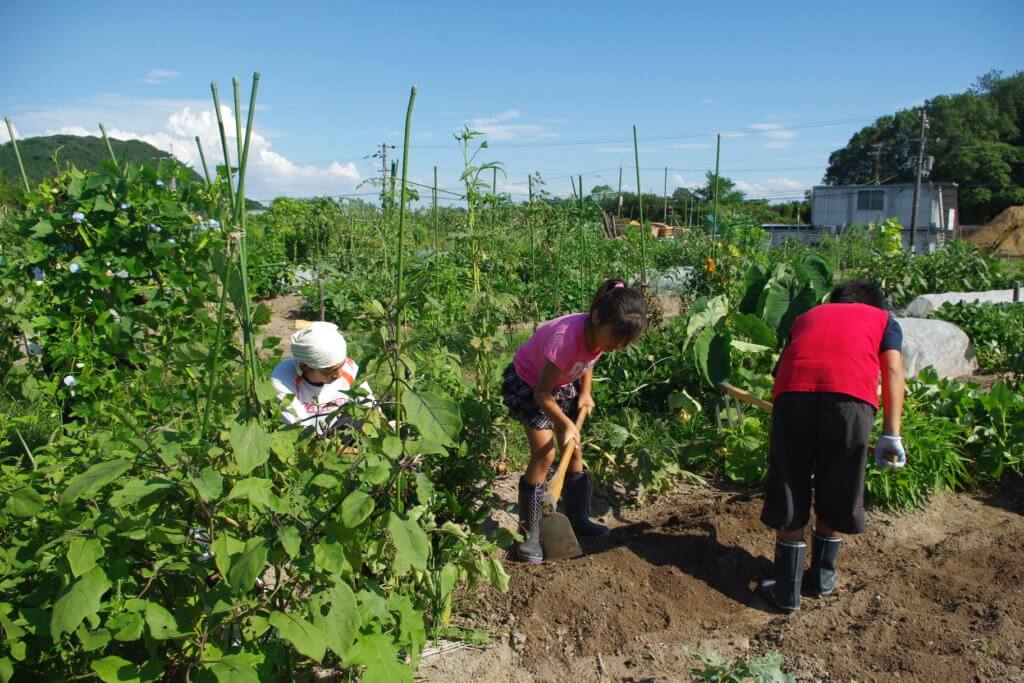
Weekend farming boom even in pandemic
By Ryoji Shimada, staff writer
“Carrots, pumpkins, peppers, burdock, bok choy, tomatoes! Growing food is totally awesome!” fourth grader Masato shouts back. His mother enjoys growing and planting all the things they like and says, “They have a lot more flavor than what you buy in the supermarket. When you cut the carrots you can smell the carrot right away.” His father is satisfied with the outcome and will soon sign on for a third year’s lease. Together with Masato’s seven year old sister, the family has fun tending to its 3 x 5 meter patch of land, working mainly on the weekends.
Increasing Weekend Farming and Decreasing Farming Population
The number of families, couples, and single office workers who enjoy farming on weekends or in between jobs is increasing in Japan, and so-called "weekend farming" is thriving. It is said that 3.6 million people (according to the 2019 Leisure White Paper) use "rental farms," which are small sections of fields that are rented out for a limited period of time, far exceeding the 1.68 million people employed in agriculture in 2019 (according to data from the Ministry of Agriculture, Forestry and Fisheries). In an attempt to capitalize on the boom, companies are turning urban residential lots and parking lots into rental farms, and farmers who have been struggling with an aging farming population and a lack of successors are beginning to regain their vitality by renting out their land to the general public.
Even in the case of a pandemic caused by the new coronavirus, the risk of infection is low when gardening outside, and this is further accelerating the boom.
Changes in the number of agricultural workers in Japan
Myfarm is one of the commercial enterprises that has found a place in the weekend farming boom. Myfarm president Kazuma Nishitsuji says he started up the company with the objective of alleviating the problem of abandoned farmland that is growing throughout Japan. Myfarm leases abandoned or dormant fields from the land owner, reformats the land into small plots for rent where people can enjoy raising fruits and vegetables without using pesticides, renting out to ordinary people including families with children, single office workers, and retirees. Myfarm has land available in 70 locations all over Japan, with as many as 2,500 group or individual renters.
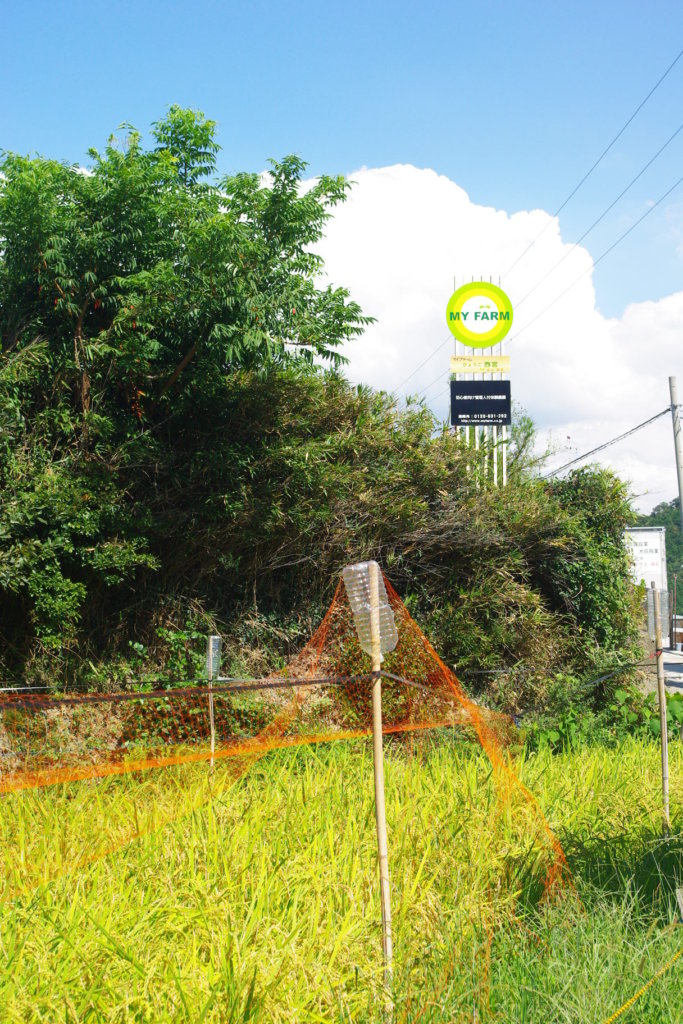
Weekend Farming Boom Makes Effective Use of Land
The farm plot that Masato’s family, mentioned above, rents is in the Nishinomiya district of Hyogo Prefecture, well-known as a high class residential area, and in fact about 10 minutes away by car can be seen some very handsome residences. “This area is zoned for restricted urbanization, so no new buildings can be built,” tells Takashi Takada, the landowner who leases his land to Myfarm. Nishinomiya is conveniently located within about 30 minutes by car for big city residents of the Osaka area, and surrounded by mountains provides a lush green environment in which to practice agriculture. Almost all of the 160 plots are under cultivation. Whereas in the past Takada would have to erect as many as 7 plastic greenhouses to gather his crops only to take in just 1.8 million yen ($22,500) a year, and would often be asked by the local tax collector “how do you manage to eat on that kind of income?” Since converting to a kashi-noen business and leasing his farmland out to others through Myfarm, and subsequently managing more land on his own without relying on Myfarm to get renters for him, he says enthusiastically that he will “soon hit 6 million yen ($75,000) a year with just a bit more effort.”
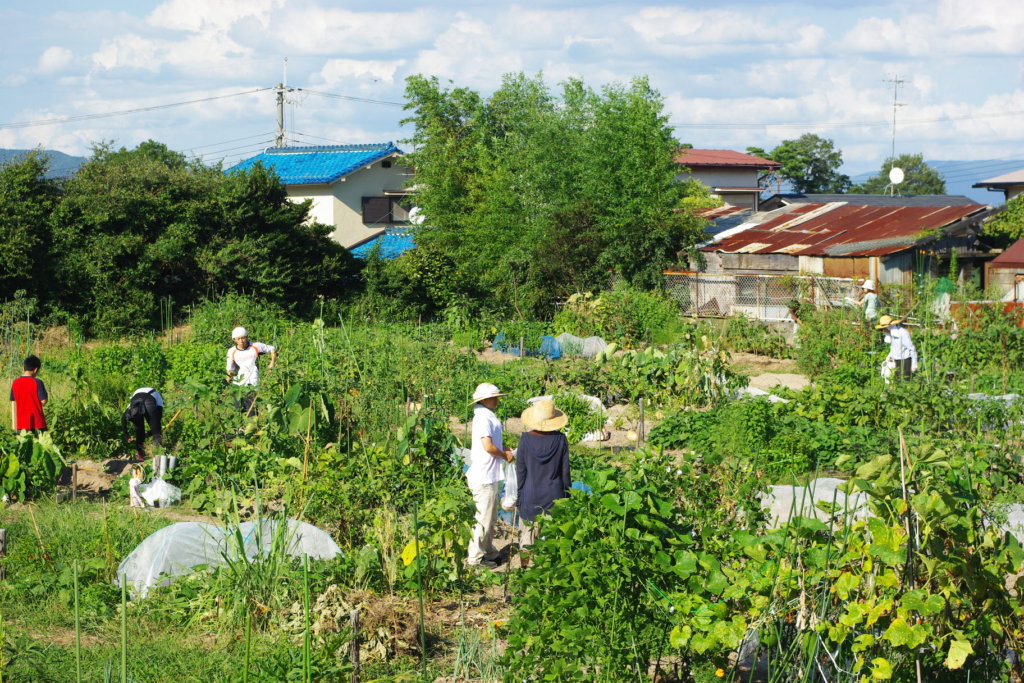
At present he is having his 25-year old Nobumitsu take over management of the plots, and is making 100,000 yen ($1,250) a month. Together with his pension, he says it is enough to live on though not luxuriously by any means. Nobumitsu had been an automobile mechanic but took on this job last year, feeling that “growing crops for sale on my own is tough, but I can make it doing this (kashi-noen management).”
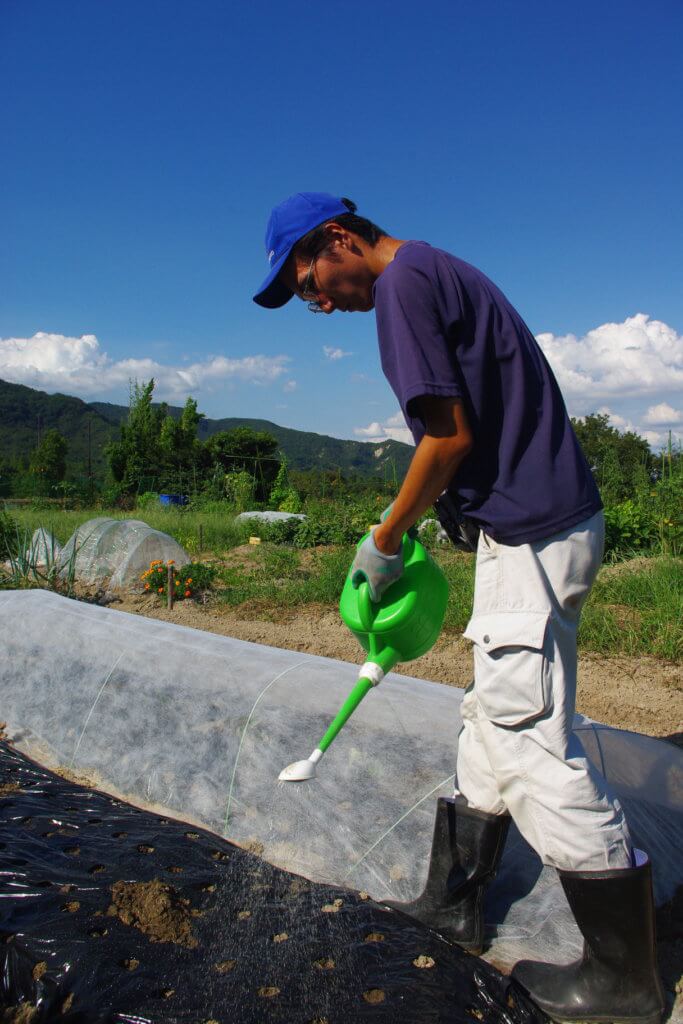
If farmers reformat their land that is not under cultivation into kashi-noen farm plots for rent, they can boost their own income while giving others the chance to experience the joys of agriculture and also helping to eliminate the problem of abandoned farmland – this is like killing three birds with a single stone. One plot (15 square meters) of the Nishinomiya Myfarm kashi-noen rents for 5,250 yen a month. Though much higher when compared to the shimin-noen or so-called people’s farms operated by the local municipalities, as another family says, “We have no problems whatsoever with (Myfarm) customer service. With Myfarm we can also rent farming tools, and they give us free fertilizer.” An engineer in his 40s who works weekdays at an electronics maker and farms a plot with his family says, “It’s helpful because they teach us how to raise our crops.”
People have various reasons for why they became involved in this type of weekend farming, but most say either for relaxation, as a kind of healing or therapeutic practice, to teach something to their children, or that they enjoy raising their own produce, or because they want fruits and vegetables produced without pesticides. Some weekend farmers become completely addicted to the activity and move on to other kashi-noen in order to rent more space. A single man in his 40s who works in computers says, “I have learned all kinds of things here, and in another five years I hope to become independent and able to farm on my own.” He used to rent somewhere else, but since there was no one to teach him, things didn’t go well with his crops and he did not get much yield. One of his failures was lettuce that his parents, with whom he lives, had asked for especially, so now “I kind of want to settle the score, and make sure I get a successful crop this time.”
Social Interaction Is a Part of It All
As seen above, when asked why they first got involved in weekend farming, no one directly answered that they wanted “social interaction.” But Nishitsuji insists that “They all definitely want (social interaction). If all they wanted was non-pesticide treated produce, they could buy it at the supermarket for less money. The fact that they want to actually come to the farm means that they are seeking some plus alpha or unknown quantity.” What that “plus alpha” means specifically is probably the whole experience of the farming lifestyle, where people comfortably exchange greetings, exist in nature, and have the knowledge of how to raise their own food, sharing in the wisdom of the elders. When asked directly if their weekend farming provides the opportunity for social interaction, one customer said he can talk easily with his neighbor renters about the crops they are growing, while a parent tells of his children catching bugs together with other kids and “getting along better as a result.”
Myfarm uses harvest time events in the fall and barbecues throughout the season to create opportunities for customers to socialize, even holding Matchmaking on the Farm o-miai or dating parties in the fields that target unmarried singles, bringing out all kinds of new possibilities for agriculture. Yuki Takahashi, a representative of Fotosynthesis Inc which holds practical training courses in agriculture in Chiba Prefecture says, “Just exchanging greetings with a person does not bring you closer. Through the cooperative activity of farming a human relationship is formed.” The Matchmaking on the Farm events allow participants to evaluate their compatibility through pairing up to plant the seeds, so to speak.
As a Place of Community
The Ninomiya kashi-noen is also visited regularly by mentally impaired individuals who are normally confined to facilities, accompanied by their caretaker staff. “I never refuse if those type of facilities ask to have their people visit,” says farmland owner Takashi Takada. He has a deep respect for the role that farmland plays as a place of community where ordinary customers can have direct contact with the mentally impaired.
As for the stated objective of Myfarm, the elimination of abandoned farmland, its effect has been like a drop in the ocean. Nishitsuji seems perplexed – “Of the 400,000 hectares of abandoned or dormant farmland throughout Japan, in the five years since 2005 Myfarm is only managing 20 hectares.” But as for the other objective that Nishitusji has pointed out, namely the social interaction, the getting closer to nature, healing therapy and wisdom that are “the actualization of the unseen attraction of the farming lifestyle,” this seems to be right on course.
<Sidebar: Abandoned Farmland>
Abandoned farmland (kousaku-houki-chi) means fields, orchards or other farmland that has not been cultivated for one year or more, and regarding which the farming household has responded, there are no plans to cultivate within the next several years. The most common cause is that there is no one to take over the farm. At this time abandoned or dormant farmland has reached 400,000 hectares, about the same area as Saitama Prefecture. Myfarm president Nishitsuji says “There is probably more than twice this number in reality,” since “Each municipality is responsible for counting the abandoned acreage. They don’t want it to be known that their own land is in disuse, so they try to give out the lowest numbers possible.” Today the acreage of abandoned farmland continues to grow every year, but as kashi-noen land also increases, the rate of growth has slowed.
<Sidebar: Weekend Farming>
The origin of the term weekend farming (shumatsu nougyou) is thought to be in the 2001 book by Takanori Miyazaki “The Fun of Weekend Farming.” More than 10 years have passed since the book’s publication and the term has taken hold, with more than 670,000 hits yielded in a Google search.


